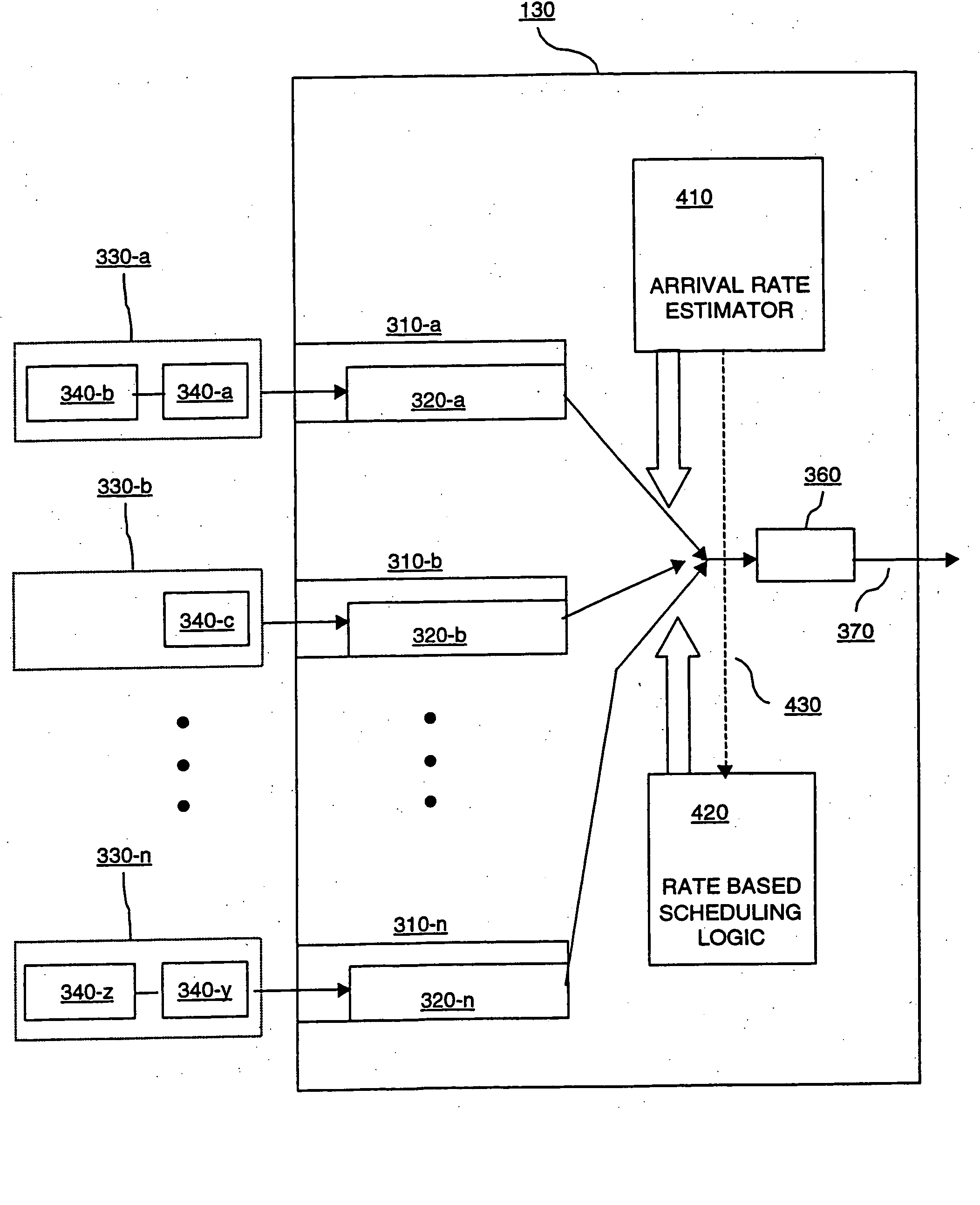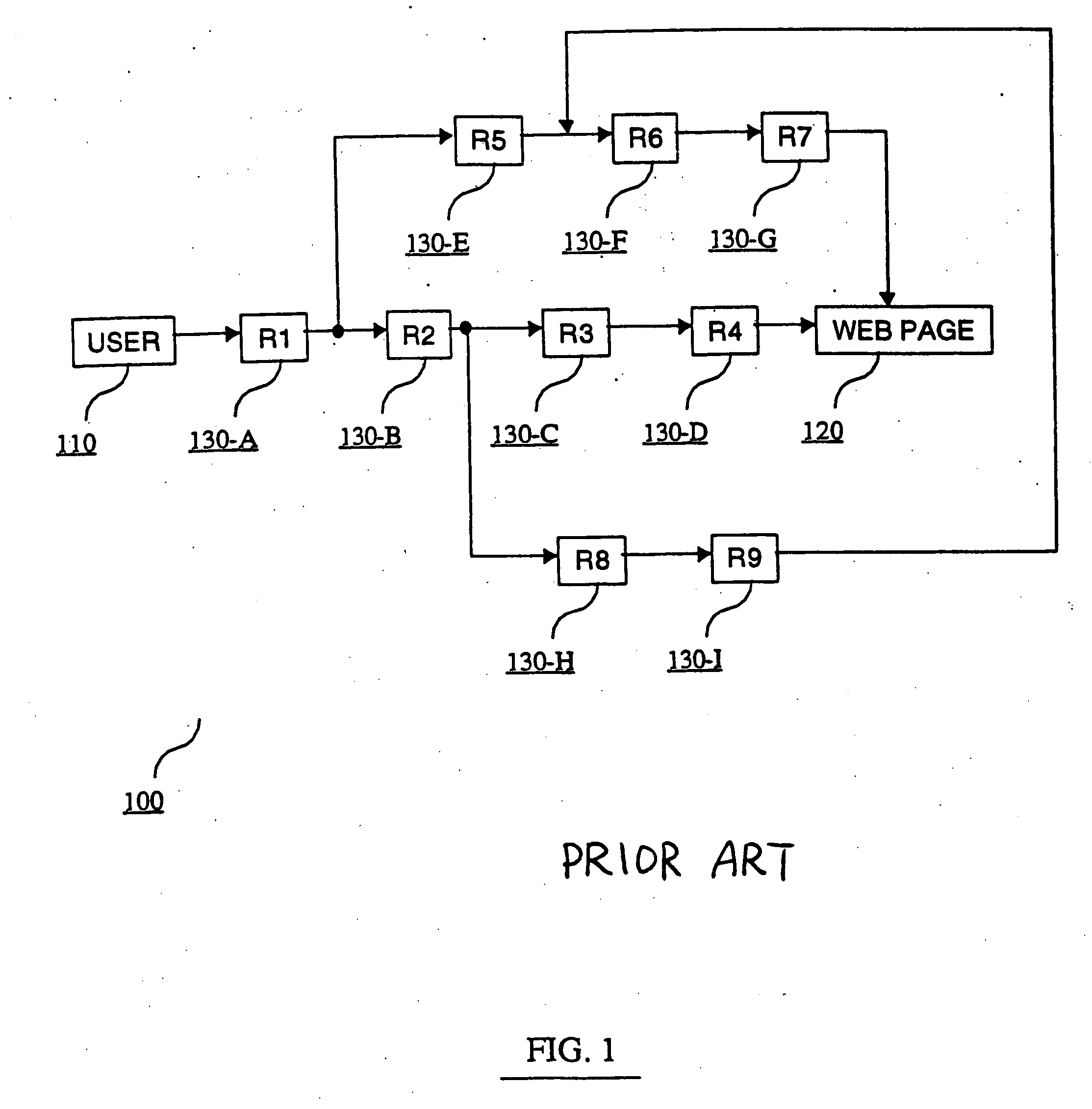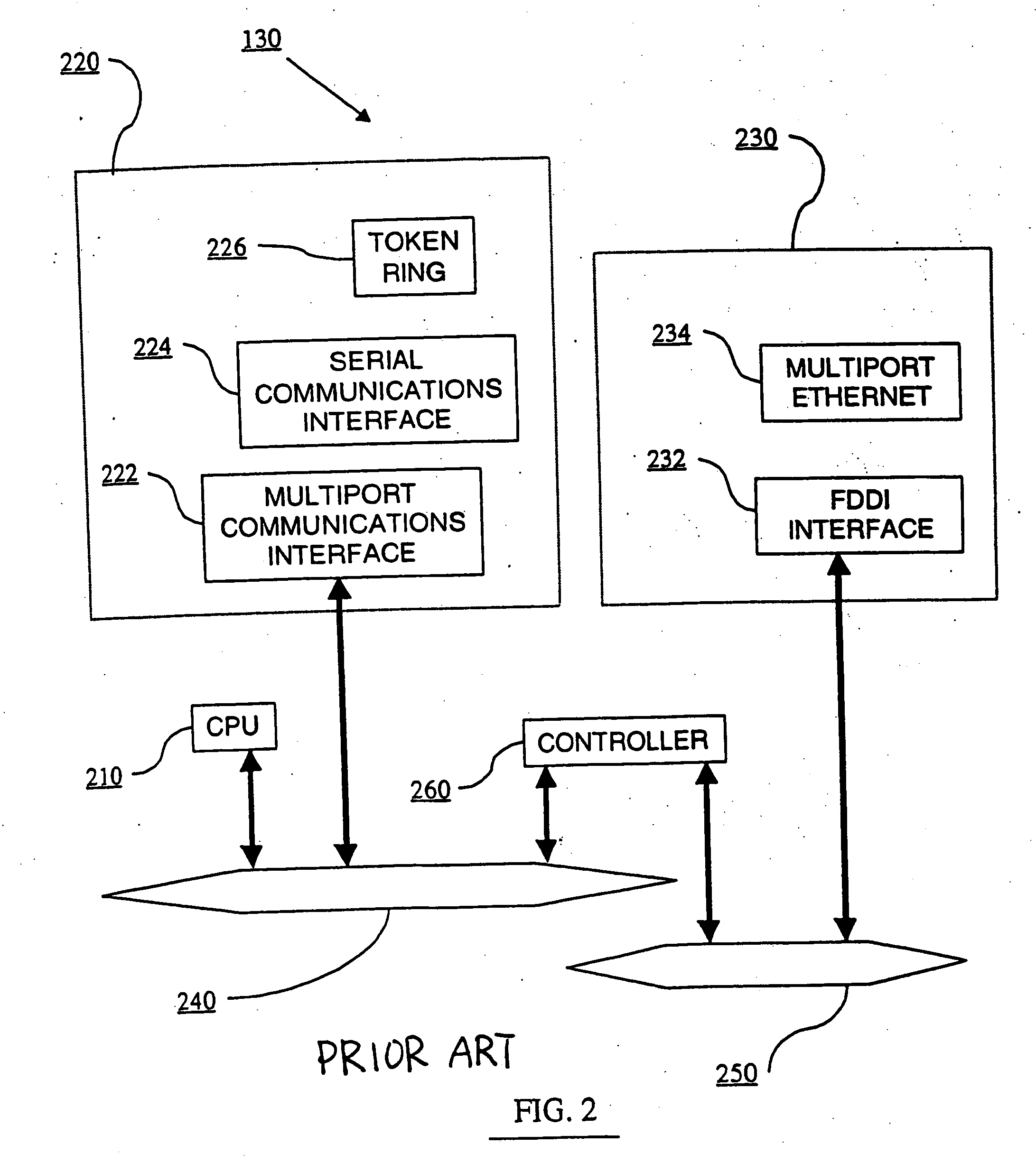Apparatus and method for rate-based polling of input interface queues in networking devices
a technology of networking device and input interface, applied in the field of data communication networks, can solve the problems of increasing the processing overhead of techniques, increasing the complexity of packet processing, and the need for new packets to be delivered on other interfaces, so as to reduce the possibility of long delay of packets, avoid possible packet loss, and improve the effect of quality of service policies
- Summary
- Abstract
- Description
- Claims
- Application Information
AI Technical Summary
Benefits of technology
Problems solved by technology
Method used
Image
Examples
Embodiment Construction
[0034] Those of ordinary skill in the art will realize that the following description of the present invention is illustrative only and not in any way limiting. Other embodiments of the invention will readily suggest themselves to such skilled persons, having the benefit of this disclosure. Reference will now be made in detail to an implementation of the present invention as illustrated in the accompanying drawings. The same reference numbers will be used throughout the drawings and the following description to refer to the same or like parts.
[0035]FIG. 4 is a block diagram illustrating a packet processing model in a router implementing an embodiment of the present invention. In one embodiment, the proposed technique provides two interrelated functions: (1) estimating data arrival rate on each input interface queue, and (2) using the estimated arrival rate on each input interface queue to determine the sequence in which input interface queues should be polled and the number of pack...
PUM
 Login to View More
Login to View More Abstract
Description
Claims
Application Information
 Login to View More
Login to View More - R&D
- Intellectual Property
- Life Sciences
- Materials
- Tech Scout
- Unparalleled Data Quality
- Higher Quality Content
- 60% Fewer Hallucinations
Browse by: Latest US Patents, China's latest patents, Technical Efficacy Thesaurus, Application Domain, Technology Topic, Popular Technical Reports.
© 2025 PatSnap. All rights reserved.Legal|Privacy policy|Modern Slavery Act Transparency Statement|Sitemap|About US| Contact US: help@patsnap.com



